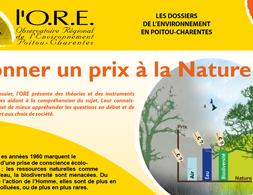10 results
À travers les réflexions et les analyses de plusieurs intellectuels de renom, ce documentaire trace un portrait de l’idéologie néolibérale et examine les différents mécanismes mis à l’oeuvre pour en imposer mondialement les diktats.
Déréglementer, réduire la taille de l’État, privatiser, limiter l’inflation plutôt que le chômage, bref, financiariser et dépolitiser l’économie : les différents dogmes de cette pensée prêt-à-porter sont bien connus. Et s’ils s’immiscent lentement dans nos consciences c’est qu’ils sont diffusés à travers un vaste et inextricable réseau de propagande.
De fait, depuis la fondation de la Société du Mont Pèlerin, en 1947, les instituts de recherche néolibéraux, ces think tanks financés par des transnationales et des grandes fortunes, propagent inlassablement la pensée néolibérale au sein des universités, dans les médias, auprès des parlementaires, etc.
Cette idéologie qui s’affiche évidence, forte de la sanction historique et scientifique que semble lui avoir conférée la chute de l’URSS, a su intoxiquer tous les gouvernements, de gauche comme de droite. En effet, depuis la fin de la Guerre Froide, le rythme des réformes néolibérales est allé sans cesse s’accentuant. Souvent imposée par la force, que ce soit à travers les plans d’ajustements structurels du FMI et de la Banque Mondiale, sous la pression des marchés financiers et des transnationales ou même par la guerre, la doctrine néolibérale s’étend dorénavant à la planète entière.
Mais derrière l’écran de fumée idéologique, derrière ces beaux concepts d’ordre spontané et d’harmonie des intérêts dans un libre marché, par-delà la panacée de la «main invisible», que se cache-t-il réellement ?
L'Observatoire régional de l'environnement (ORE) expose les instruments économiques que nous avons à disposition pour faire face à la gravité des problèmes environnementaux (réchauffement climatique, stress
hydrique, pollution des eaux continentales et marines, érosion de la biodiversité).
On apprend quels sont les enjeux à mettre un prix à la nature (pollution, biodiversité...) et quels sont les avantages et inconvénients de chaque mesure mise en place par l'État pour agir pour une transition écologique durable. Enfin, il propose différentes méthodes qui pourraient améliorer notre approche à inclure notre environnement dans notre système économique en prenant des cas concrets (eau potable, prix du carbone...)
Prof. Yanis Varoufakis talks in this introductory lecture about the future of our economy and the current state of economics with special regard to pluralism in economics.
Steve Keen analyses how mainstream economics fails when confronted with the covid-19-pandemic. Mainstream economics has propagated the dismantling of the state and the globalization of production - both of which make the crisis now so devastating. More fundamentally, mainstream economics deals with market systems, when what is needed to limit the virus’s spread is a command system.
This brief note explores the possibility of working towards an enlarged self-definition of economics through economists’ study and appreciation of economic sociology. Common ground between economic sociology and heterodox economics is explored, and some of Richard Sennett’s ideas are used as prompts to raise some pertinent and hopefully interesting questions about economics. In particular, the note revisits the question of whether there is a possibility of changing our understanding of what kind of social scientific work falls within the domain of economics proper once we start critically engaging with work conventionally considered to be outside of that domain. In part, the note is intended to offer undergraduate students in economics – and possibly even those further down the road in their education – food for thought about what constitutes economics.
This is a new online course at bachelor level. It presents an introduction into macroeconomics with a specific focus on the euro area. The theoretical part provides a critical presentation of the two key macroeconomic models: the (neo)classical approach and the Keynesian approach. This allows a comparative analysis of important macroeconomic topics:
unemployment
inflation
government debt and Modern Monetary Theory
banks and financial crises.
The policy-oriented part discusses the monetary policy of the ECB and the specific challenges for fiscal policy in the euro area. The course also presents other euro area specific topics: Optimum currency area, euro crises, Next Generation EU and Green New Deal.
Understanding the financial crisis from four very different economic theories: Social Economics, Institutional Economics, Post Keynesian economics.
Diane Perrons and Sigrid Stagl combine feminist and critical environmental economics perspectives to develop a critique of the free market growth model and offer new ideas for a more sustainable gender equitable model of development in the interests of all.
Foundational economy is the most important concept you have never heard of. The foundational encompasses material utilities like water, gas and electricity and providential services like education, health and care. Taken together, these services matter economically and politically because they are the collectively consumed infrastructure of everyday life, the basis of civilization and should be citizen rights.
Traditionally, economists have attributed consistency and rational calculation to the action of ‘economic man’. In a powerful challenge to orthodox thinking, Geoffrey Hodgson maintains that social institutions play a central and essential role in molding preferences and guiding action: institutions are regarded as enabling action rather than merely providing constraints.
Nous utilisons des cookies sur notre site Web. Cliquez sur Accepter pour nous aider à améliorer constamment Exploring Economics !










